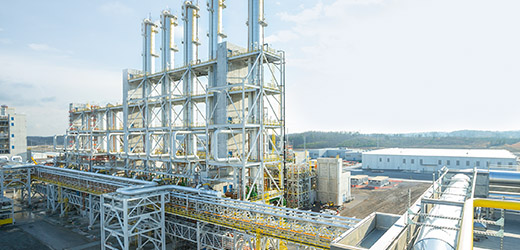Social Responsibility
WACKER sees itself as a good corporate citizen – as part of the society in which we live and work. We practice social responsibility, especially in the regions where our sites are located.
Social Issues
Neighbors – corporate citizenship is based on good relations with local communities and neighbors. We are transparent about what happens behind our factory gates. All of our sites worldwide respond to inquiries from the public. Local residents voicing concerns receive prompt and clear answers. Local hotlines and central contact persons are available for such matters. We publish information about our sites in environmental reports and in other brochures.
At some of our sites, we offer local communities free services, such as the Household Hazardous Waste Day at Adrian, Michigan (USA), where neighbors can bring in household chemicals that are not allowed in trash cans.
WACKER supports the regions surrounding its sites by procuring about 90 percent of technical goods and services in the same country where the demand arises.
Donations and sponsorships – Our sponsorship activities focus on education and science. We have sponsored the Institute for Silicon Chemistry at the Technical University of Munich since 2006. In the reporting year, we donated US$1 million to the PIE Innovation Center, a training center in Cleveland, Tennessee (USA).
In Munich, WACKER has sponsored a children’s and youth charity, The Ark, since 2006, and, in the reporting year, made its 16th regular donation of €100,000, taking the total donated (including special donations) to over €1.6 million. The Ark helps children and adolescents from socially disadvantaged families in the city’s Moosach district.
The WACKER Relief Fund is dedicated to providing unbureaucratic, long-term aid, especially in the wake of natural disasters. The fund’s board members and trustees work on a voluntary basis. So far, Wacker Chemie AG has matched all employee contributions to the fund. The relief fund uses its cent-donation program to finance ongoing operations at the schools it sponsors. Employees agree to round down their monthly paycheck to the next lower euro amount, and the company matches the cent amounts it collects, thereby doubling its contribution.
During the year under review, the WACKER Relief Fund donated €600,000 to the German Red Cross emergency fund for war victims in the Ukraine. Of this amount, employees donated €280,000, which the company then more than matched. WACKER had previously donated €100,000 directly to the Ukraine emergency fund.
In 2022, WACKER paid €372.1 million in current taxes to governments throughout the world (2021: €255.5 million). In addition to these corporate taxes, governments also receive the personal taxes and social-security contributions paid by our employees.
Schools and universities – WACKER wants to encourage children and young people to explore technology and the natural sciences. As a chemical company, we have a steady demand for outstanding scientists, now and in the future, which is why we support progressive teaching methods and modern approaches to school management. We are a founding member of the Bavarian Educational Pact, a foundation in which the state of Bavaria collaborates with industry to modernize Bavaria’s education system. Angela Wörl, our Personnel Director, is a member of the foundation’s board of directors. WACKER’s CHEM2DO® experiment kit helps us provide free advanced training to science teachers in Germany and Austria on how to experiment in the classroom with silicones and cyclodextrins. Digital chemistry classes are enriched with animations and explanatory videos on curriculum topics such as interactions, hydrophobization, crosslinking and properties of plastics and silicones.
WACKER places great emphasis on fostering young scientific talent and maintaining close contacts with universities. Our researchers are invited to deliver presentations and lectures at universities. University groups visit our locations to gain insights into work at an industrial company. During the coronavirus pandemic, we increasingly used virtual formats for these activities. Students can write their bachelor’s, master’s or doctor’s theses at WACKER, or work as interns or student employees.

